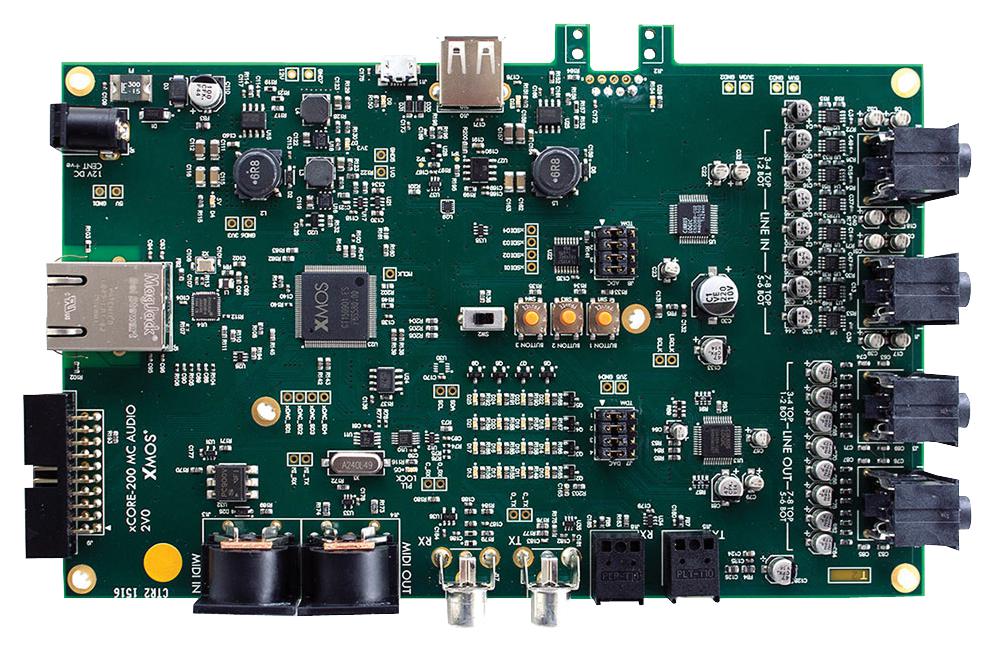
- #GENERIC USB AUDIO DRIVER XMOS HOW TO#
- #GENERIC USB AUDIO DRIVER XMOS INSTALL#
- #GENERIC USB AUDIO DRIVER XMOS DRIVER#
- #GENERIC USB AUDIO DRIVER XMOS PROFESSIONAL#
#GENERIC USB AUDIO DRIVER XMOS DRIVER#
After the device-specific driver is installed, Windows 10 will select that driver instead of the standard USB audio 2.0 driver when you first connect the device.
#GENERIC USB AUDIO DRIVER XMOS INSTALL#
If the device is not yet connected, first install the device-specific driver, such as by using the appropriate installer. XMOS Driver v4.13.
#GENERIC USB AUDIO DRIVER XMOS HOW TO#
For more information about how to do this, see update drivers in Windows 10. Optional - XMOS Firmware Update Utility (DFU) for Win 10/11 ZIP. Human Interface Devices (HID) is a device class definition to replace PS/2-style connectors with a generic USB driver to support HID devices such as. If the device-specific driver is distributed through Windows Update, you can manually update the driver by using Device Manager. The firmware will be available in about 10 minutes. To resolve this issue, install update 4022716. As per the user manual, there is a slight delay in firmware update. To fix this issue, use one of the following methods. This issue also causes Windows 10 Version 1703 to postpone the search for other compatible drivers through Windows Update that typically occurs immediately after you install a new device. Therefore, the system assumes that a compatible, nongeneric driver is installed for the device even though the driver is generic. This issue occurs because the USB audio 2.0 driver (usbaudio2.sys) isn't classified as a generic driver in Windows 10 Version 1703. When you connect a USB audio device to a Windows 10 Version 1703-based computer the first time, the operating system detects the device but loads the standard USB audio 2.0 driver (usbaudio2.sys) instead of the specific device driver. important have the daemon.This article helps to fix an issue in which Windows 10 doesn't install specific drivers for USB audio devices on the first connection.Īpplies to: Windows 10, version 1703 Original KB number: 4021854 Symptom pulseaudio -start -D -exit-idle-time=-1Ħ. write your own "pulseaudio" rc.d file i.e. Use the "trivial" sampler vs "spex" to save cpuĤ. "you may add auth-anonymous=1 to the end of the load-module module-native-protocol-tcp line to disable authentication"ģ. I highly recommend using PulseAudio vs direct hw Alsa in the nf - some programs wouldn't work with the nf with the "type hw" for "pcm" I use "type pulse"Ģ. confĪlso reboot befor you try pepedog Developer Posts: 2431 Joined: Mon 3:30 pm Location: London UK This looks like a possible solution? I have never tried this sort of thing, one thing wrong is any file in /etc/modprobe.d must end in.

If user wants to use this item, it is strongly recommended to turn off write.

In the mean time, if user accidently turn on write protect switch, pressing any button will erase the storage.
#GENERIC USB AUDIO DRIVER XMOS PROFESSIONAL#
Then again, WarheadsSE maybe right, I am just a (sometimes lucky) dabbler, he is a professional As per the user manual, there is a slight delay in firmware update.

Linux-2.6.38.3/sound/usb/īut you can't do any of that, you got an Oxsemi NAS and only WarheadsSE can compile. I have hacked kernel source to get a video card working, a new card had different product id so put it in the alias of the kernel source and compiled, in your case that would be I peeked into my /lib/modules/2.6.38.3/bmap and /lib/modules/2.6.38.3/modules.alias which I believe is where the product and vendor info ties to which driver, then driver in most cases just loads, some soundcards will also require extra info in /etc/modprobe.d/nf to work properly, and maybe something in /etc/nf, but you haven't got to those stages (no module loaded). lib/modules/2.6.38/kernel/sound/usb/snd-usb-audio.ko.gz I still have libs from my older kernel, ~]# locate snd-usb-audio


 0 kommentar(er)
0 kommentar(er)
